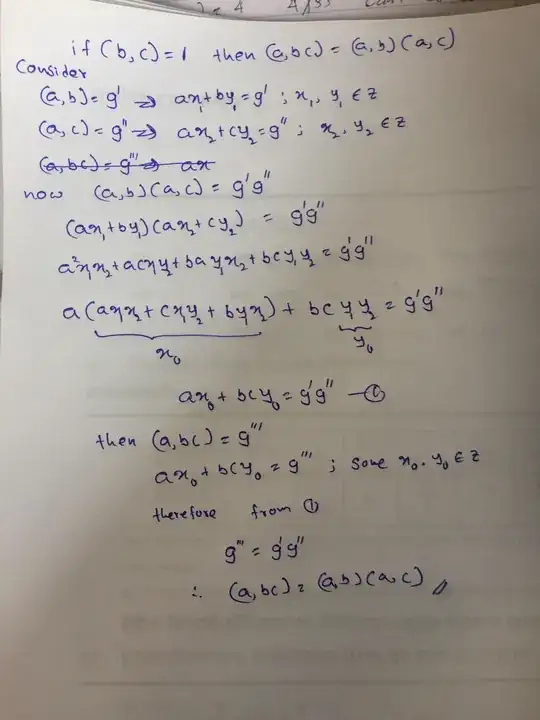[Note: question was updated and clarified so comments & answer are a bit out of sync - Bill D.]
I have little confusion about the claim (ii) below. Although the claim employs the hypothesis $\gcd(b,c)=1$, I think I have proved it without this, but I know that without $(b,c)=1$ this is not true. My question is: why was I able to prove it without this hypothesis?
For $a, b, c \in \mathbb Z$, prove that
ii. if $\gcd(b, c) = 1$, then $\gcd(a, bc) = \gcd(a, b)\gcd(a, c)$
This is the way i tried to prove this:
